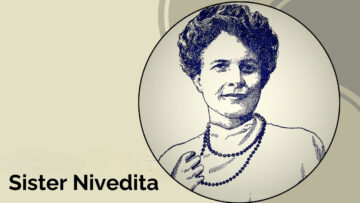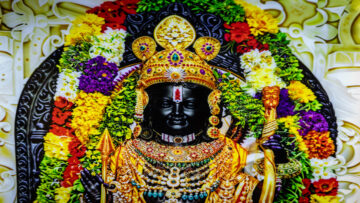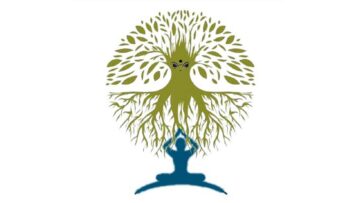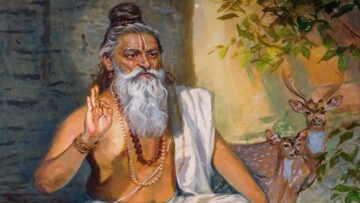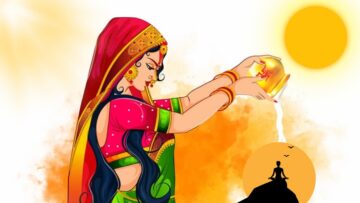Masti Venkatesh Iyengar (1891 – 1986,) a doyen of Kannada literature, was a recipient of the Jnanapith award, the highest literary award conferred in India. He wrote under the pen name of Srinivasa. He has written many novels, plays, and short stories. His notable novels include Subbanna, Chikaveera Rajendra, and Chennabasava Nayaka. His play Kakanakote, was made into a movie in 1977. Many anthologies of his short stories have been published. Many of his works have been translated into English.
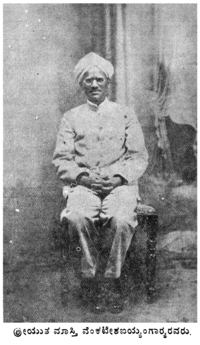
Masti was a civil servant and retired as a district commissioner, serving in many parts of Karnataka. His literary works reflect his rich experience. He had an uncomplicated narrative style that is utterly down to earth, but there is a wealth of learning, discernment, and experience visible in every line he wrote. A reader will find his works extremely relatable and evocative.
Masti had a great appreciation for the feminine. Masti’s women characters are kind and wise. Even in this short story, the respect he accords to Rani Lakshmammanni and Krishna Rao’s wife, whom he describes as a sadhvi, a spiritual and kindly woman, is evident.
The following is a faithful translation of the short story titled, ‘A Letter from Abbe Dubois,’ is in Volume 2 of The Collected Short Stories of Masti Venkatesh Iyengar.
Abbe Dubois, the author of the book, “Hindu Manners, Customs, and Ceremonies,” was also a prolific letter writer and regularly wrote to his friends. His unpublished letters are now kept in the Sorbonne library.
My friend Venkata Rao sent one of those letters to me, and this is a translation.
December 12, 1800
Seringapatam (Now, Srirangapatna)
Dear Professor Boyne,
Please accept my salutations.
I am writing from Seringapatam. As you are aware, I have come here, according to the British East India company’s instructions. I had traveled around in this region earlier, but I had not visited this island city.
When people talk about islands surrounded by a river, they typically mean a little mound. But this island city is by no means small and occupies an area of about 3 to 4 square miles. The river Cauvery bifurcates into two wide channels when it reaches this place. After flowing separately for about three miles, the two parts of the river converge again. People call it a river island.
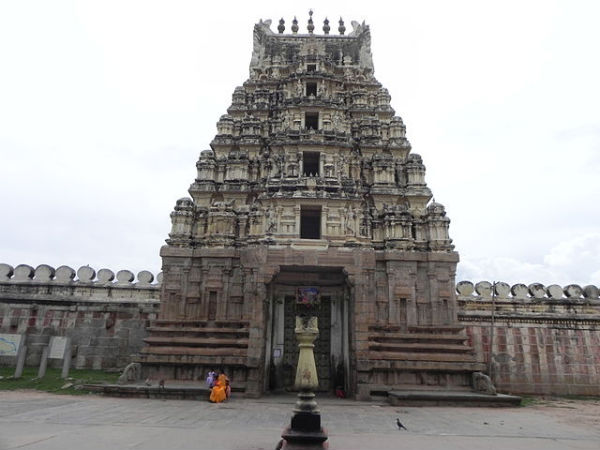
Ranganathaswamy Temple, Srirangapattana ( Credits: https://www.picuki.com/tag/ranganathswamytemple)
Cauvery is quite extraordinary in that there are two more such islands. The people of this country, in their typical style, have made these three islands into holy places. They have built temples for their god, Lord Ranganatha, in all three locations. They have created a fanciful narrative that Cauvery is Ranganatha’s wife, and Lord Ranganatha is sleeping in her arms. It is their custom. From the point of view of poetic expression, it seems fair, but I think this attitude has harmed them.
I feel these people, especially those who work in temples, have a constant preoccupation with the notion of romantic love between a man and a woman.
That is all they think about. They even term the meeting of the two river channels as ‘sangama.’ If I ask them the meaning of the word, they simply say, ‘coming together,’ with apparent innocence. However, the word is typically used for mating or the carnal union of a man and a woman.
A large island with a river on either side, farms dotted with coconut trees and fields along the banks, beautiful royal gardens with mausoleums of Hyder Ali, and more recently, Tipu, make this fortified town a pleasure to live.
It has not been too long since Tipu’s death. The young Hindu prince has since been reinstated, but the administration is handled by his chief minister. Consequently, the town has not fully come back to life. But the place still has a strong presence of both native armies and the British forces. The soldiers in the native army are also reasonably good.
But I must say, these people are inordinately lazy. As you probably know, they take their own time to even grasp what you tell them. You will find even the supposedly savvy Diwan Purnaiah, moves and talks deliberately, unlike our people who are likely to be quicker and more active.
Strangely, though, the administration has not stalled. People are respectful towards him and wary of not following his instructions. When I first came to the city, I spoke to him about a few things I needed for my work. Most of what I requested is already done. I am confident that I will get everything I need to impart the message of Christ to these people living in the dark and direct them towards divinity and light.
We must keep in mind that these people will take their own time to make up their minds about religion. Even if you tell them their house is on fire, they do not run to put out the fire. They will probably ask calmly how the fire started.
Then they will wonder where they can find water, and then think about getting a few people together to combat the fire, and finally, they will amble along towards the house after telling themselves what is in store for them will happen. By this time, the fire would be raging, and they will probably throw a few buckets of water.
If you tell them, ‘Oh, sinners, save your souls,’ they will turn right around and ask, ‘What sin, and where did it come from?’ They do not have faith in the story of Adam. These people lack faith. This is especially true of the Brahmins, their priestly class.
They embrace their ignorance and stand smiling at the precipice of death. They do not realize they are so near hell. It is next to impossible to convince them and take their other countrymen into our fold.
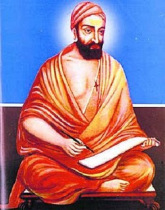
You know De Nobili declared that to win Hindu society over, you must conquer the Brahmins first. He tried to follow Brahmin customs, like fasting, ritual bathing, giving up sleep. He dressed like them. He learned Sanskrit. Despite all these struggles, he failed to win over the Brahmins. They gave our brother all the facilities and help he needed, but they sent him on his way in the end. We must learn from this episode that we must not try to conciliate the Brahmins to spread our religion. We must welcome those that are touched by our Lord’s message. We cannot please the people that laugh and ridicule. Perhaps they will come around in the end, but until then, we will not bother them.
The Muslims committed a different kind of error. We must understand their mistakes and learn from them. They forcibly convert people. You have probably heard that Tipu Sultan’s officials converted multitudes of people by the sword into Islam in the territories conquered by him. Perhaps force was the problem. After all, even though people are hurt at the point of conversion, they must stay in the new religion because the Hindus do not take them back.
If you manage to convert the head of a family, the entire family will probably follow. The first generation that converted will likely suffer from resentment and dissonance till their dying day, but the children will become ardent followers of the new religion, embracing it more fanatically than those born in a family following that religion for thousands of years.
If you see forcible conversions from this angle, perhaps it is not such a bad idea. On the other hand, it is not only boorish and uncivilized; there is also a real danger that some victims are so enraged that they can cause significant harm.
The fate of Tipu Sultan forcibly illustrates my point.
Hyder Ali usurped the kingdom of the Hindu king of this country. He did not hate another religion nor care for his own excessively. But Tipu had an inordinate love for his religion and tried to spread it zealously. Perhaps that is why he lost his kingdom.
I will narrate his story.
You are aware that the Hindu king continued to live in a small mansion here. A Brahmin woman was employed in the palace service, and it was part of her job to supply Tulsi leaves for the royal household. Her teenage son, Narasimha, did small chores for her.
Within a year of ascending the throne, it was clear that Tipu was a religious zealot. Even in Seringapatam town, many citizens had been forcibly converted into Islam.
Even though he secretly encouraged the conversions, Tipu publicly said that his administration did not believe in force.
If people petitioned about forcible conversions, he would conduct a sham trial and declared that the converted had done so out of their own free will.
After about a year after Tipu became the Sarvadhikari (literally, dictator, sometimes used as a prime minister), Narasimha’s mother sent him to bring Tulsi leaves from the garden one day. For some reason, Narasimha was late that morning, and everyone that had gone to the garden had already returned, and Narasimha was alone collecting Tulsi leaves. He was spotted by a group of Muslim men, who approached him and spoke to him.
There is a nearby garden with many flowering shrubs, they said, where Narasimha could get plenty of flowers for worship. Narasimha was apprehensive but too scared to say no. He accompanied them. They took him into a building.
He was a prisoner there for the next eight days.
Meanwhile, his mother frantically searched for him everywhere and complained to the king. Someone who had witnessed the boy getting kidnapped whispered the news to the mother, who petitioned Purnaiah, the same person who is the Diwan today. I do not know his stand about such matters, but clearly, the people were unsettled, and after the palace pressed the issue, Tipu Sultan arranged for a search party. Narasimha was brought to the royal mansion.
The Maulvi and the four Muslim men who had kidnapped him gave evidence that Narasimha had converted to Islam out of his own free will, and there was absolutely no compulsion. But Narasimha cursed them right in front of the Sultan and told everyone that they had tortured and ruined him. The Sultan had no other go but to punish his tormentors and release the boy.
Narasimha came into the royal mansion and begged them to somehow take him back. It is not possible in the Hindu religion.
“It is eight days since your sacred thread is broken, you have not performed your Sandhya prayer, no one knows what contaminated mleccha food you have eaten, perhaps they have even given you a Muslim name, how can we take you back into the Hindu fold,” they said.
The king and his mother tried their best to take Narasimha back into the fold and advocated for some atonement procedure to facilitate his return. But they failed.
Narasimha was crushed. He told the Brahmins that refused him, “God will punish those Muslims that forcibly converted me, a devout Hindu, into their religion. And he will not forgive you, who refuse to right the wrong done to me by them, either. Curse you! If you are not ruined, I hope the religion that you represent is ruined.
Yes, I am cursed to be a Muslim, and I accept my curse. The king and the queen mother understood my pain, and I wish them well. I am a servant of Tipu Sultan from now on. Take care not to come face to face anywhere near me. I will spit in your eye and ruin your caste as well. I will snatch your sacred thread, and you will never be Brahmin again.”
Narasimha left, shedding angry tears, and screaming curses at them. He went straight to Tipu’s brother-in-law and applied for a job.
Thus, Mohammad Abbas became an employee in Tipu’s close circle. Most Muslims did not hate Brahmins with the visceral hatred that Mohammad Abbas entertained for them.
After Tipu came to power, it became the norm that only Muslims were employed for important administrative and revenue positions. But none who got those posts knew Kannada and depended on their none too trustworthy subordinates for interpreting documents for them. Abbas was the go-to person for all these officers. He never hesitated to point out people’s wrongdoings.
The subordinate functionaries were afraid of him, and Abbas managed to earn the trust of prominent Muslim officials. The man who used to be called Narasimha was gifted with a quick grasp and intelligence. Soon, he rose through the ranks and became a key administrator in Sultan’s inner circle. Even Purnaiah, who had not taken young Narasimha’s case too seriously, now started treading with caution when dealing with Abbas.
Years passed.
The Sultan continued to remove Hindus from positions of responsibility and stature and install Muslims in their place.
He winked at the continued religious persecution and forcible conversions of Hindus to Islam. Consequently, the disaffected Hindu citizens of the state abhorred him. For as long as Hyder Ali was alive, he pretended to represent the Hindu king of the realm. After Tipu had come to power, clearly, the gloves were off, and there was no doubt that he had dethroned the king.
The Muslim leaders also hated him for his arrogance.
Many palace administrators loyal to the Hindu king were smarting at how Tipu had managed to insult and marginalize the royal family. There were constant efforts to reinstate the king to his former position and power. The prime mover of this movement was the erstwhile queen, now the young prince’s grandmother.
Queen Lakshmammanni is still alive. She is a very able administrator. She concluded that there was no other way to topple Tipu than to enlist the help of the British. She sent emissaries to Madras (now Chennai) to talk to them. But you know what went on, the machinations, and the events that unfolded.
Queen Lakshmammanni’s representative, Tirumalaraya, lived in Madras and orchestrated the events on her behalf. Lakshmammanni wrote detailed letters addressing every issue and every concern and sent them through messengers. For a good couple of years, Tipu was oblivious to the intrigue. Then, someone alerted him to the possible conspiracy.
Tipu awoke and employed spies to watch the messengers acting as conduits between Madras and Seringapatam.
The assistant chief minister, Krishna Rao, a Maharashtrian Brahmin, was helping Queen Lakshmammanni in this mission. Strangely enough, Brahmins still occupied the most important administrative positions of the chief ministers, even though Tipu had systematically removed Hindu administrators and installed Muslims in their jobs. I fail to understand how Tipu allowed them to continue in such powerful positions.
On the other hand, I feel these Brahmins in powerful positions did not even behave like Hindus. They did not overtly give up their Brahmin identity, but inside, they had abdicated their Hindu identity, or at least, their self-respect.
Perhaps they had assigned themselves a limited objective philosophy, ‘Let the king do as he wishes, if I carry out my job faithfully, I am happy.’ It is a good philosophy, in a sense. But from another point of view, it is reprehensible. Anyway, both Purnaiah and Krishna Rao were the most important members of Tipu Sultan’s cabinet.
I have heard they sought the help of these Brahmins to depose Tipu and reinstate the Hindu king. But Purnaiah turned a deaf ear to all these pleas. When someone asked him whether the king or Tipu’s children should be placed on the throne after Tipu, Purnaiah is said to have named Tipu’s children as the inheritors of the Mysore throne.
Why not the Hindu king? Purnaiah apparently said, “Well, there are no commensurate benefits for crowning the Hindu prince, as the next king!” Purnaiah’s loyalty to his master must indeed be lauded.
Paradoxically, now the Hindu king is back on the throne, and Purnaiah is still his prime minister. He is equally loyal to the king.
Krishna Rao was not perhaps as loyal to Tipu Sultan. The palace administrators hostile to Tipu Sultan helped Krishna Rao in his mission. Mohammad Abbas was one such.
No one knows what part Mohammad Abbas essayed in the conspiracy.
I have already told you he was astute. He was educated. Everyone knew how much he hated the Brahmins. As a result, Muslims trusted him. As a Muslim, he could go wherever he pleased.
But Mohammad Abbas never forgot the kindness Queen Lakshmammanni had shown him when he had lost his caste. He had grown up in the royal mansion and had a soft corner for the royal family. Queen Lakshmammanni knew he would be helpful and trustworthy.
Mohammad Abbas helped her write letters, carry secret messages to and from the palace, and organize the resistance. In short, he managed to do the work of ten people. He was actuated by hatred and vengefulness towards those who had ruined his life, and not by loyalty towards Hindus. His only thought was these cruel people should not be allowed to rule.
One day during the time Tipu was campaigning in the north, Abbas was a tad careless, and a letter addressed to someone in Madras fell into the hands of a Tipu partisan. Tipu learned of the correspondence and hurried home.
Abbas did not implicate anyone during his trial personally presided over by Tipu. He admitted he had written the letter. But someone else tattled that Krishna Rao was also part of the conspiracy. I heard that Tipu Sultan had Krishna Rao killed and forced his wife, a kind and lovely girl, into his harem.
Abbas was declared a traitor. His punishment was read. Mohammad Abbas was to be tied to the feet of an elephant and dragged around the town.
Mohammad Abbas abused Tipu Sultan and his religion to his heart’s content. He also declared that his own birth religion—the Hindu religion—was a religion of the faint-hearted; it did not allow anyone to live courageous lives. He said both religions had to be destroyed.
Then he said, “Look, Sultan, you will achieve nothing by punishing me. I am tired of this life and gladly die. But hear me! Your rule will end soon, and you will perish. Plans for toppling you are made and put in motion already.”
Abbas walked unaided to the elephant that was to drag him around. The people of Seringapatam hid inside their homes, too terrified to watch this horrible execution. Some townsfolk peaked from half-open windows. They would swear later that Abbas had a beatific smile on his face, despite being dragged through the mud by the elephant.
Narasimha alias Mohammad Abbas died thus.
But the spark he lit smoked for three years and ended in the conflagration of the last siege of Seringapatam. Tipu died in that battle. The Hindu prince was reinstated and now rules as king.
While you might not believe every single detail of Narasimha’s story, it is indeed true in broad brush strokes. These people do not hesitate to exaggerate a story if only to add color to it.
But in conclusion, if only Tipu had controlled his fanaticism, if he had not forced people like Narasimha to convert to his religion, perhaps he might have continued to rule. His religion has been harmed by his militancy and extremism. Tipu was not wise; he did not discriminate.
But we must not lose heart and conclude our religion will not spread.
Hindu religion has some severe lacunae. Perhaps Islam could address those lacunae, but its followers cannot love it because of its inherent problems. On the other hand, Christianity addresses Hinduism’s lacunae, and because it is not harsh like Islam, it attracts followers.
Hinduism has three fundamental lacunae.
One, it says, God created the world as a sport. This means the hardships and troubles of the people is a game for Him. Hindu God is not kind, like the Christian God. It does not matter so much when people are happy and content.
But in this land where people are suffering, God must be the epitome of kindness. People need a Christian God during hardship. When we explain this to the people, they will flock to us.
Secondly, the Brahmins are arrogant, full of hubris, and do not take pride in their religion. They think they are the most extraordinary creatures in God’s creation. In the entire earth, Aryavarta is the land of good and plenty because there are different varnas, ashramas, and dharma.
The Brahmins are the greatest varna, they have sprung from Brahma’s face, and the others come from other organs. They are the gods of the earth; others are lesser beings. Many people are revolted by this arrogance. Brahmins do not help other people. Narasimha’s case is a good illustration of their arrogance and refusal to help anyone, even their own.
Hindu religion is like a valve: anyone can go out; no one can come in. Brahmins act as the doorkeepers to make sure no one comes in.
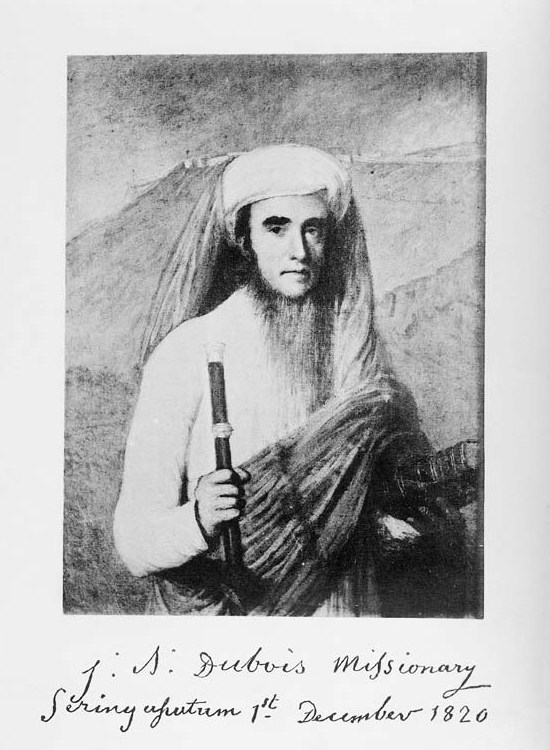
The third big problem in the Hindu religion is their refusal to clean up their own doctrine. Any religion must continuously strive to keep its own practices clean. It must abandon its questionable practices. Hinduism is questionable whichever way you look at it.
Hindu Gods cannot live without a wife. Many Gods have many wives. Its most notable avatar revels in sporting with women. Their temples have gross, vulgar, naked statues everywhere. Even their cars have deplorable depictions. The sculptors shamelessly carve these obscene idols, and Hindus watch them shamelessly. I am astounded by their unabashed vulgarity.
I went to a temple fair in a place called Muduku Tore. They had a puppet show there, where they displayed two toys in a way, I am too embarrassed to talk about. This religion will not live long. Christianity is the only cure for this land. If I start discoursing upon my reasons, this letter will become even longer. I will pick up this thread in my next letter.
I am happy and comfortable here.
Please convey my inquiries and good wishes to your students. Please write to me at your leisure. As you know, I will be very happy to hear from you.
I remain,
Your Humble Servant,
Dubois
Postscript:
I do not sure if this letter is part of his Collected Letters on the State of Christianity in India (1853.)
I am amazed that Masti offers this letter without comment. No attention is directed towards the Abbe’s wide puritanical streak or the lack of sophistication in understanding Hindu scriptures and thought.
The Abbe does not question the basic purpose of conversion to Christianity, either. Clearly, he has a good understanding of politics, but apparently no insight about the desired political outcomes of his efforts.
Interestingly, the Wikipedia page for Abbe Dubois says he acknowledged his failure to convert Hindus in big numbers to Christianity later in his life. “… that under existing circumstances, there was no possibility of “overcoming the invincible barrier of Brahminical prejudice” to convert the Hindus to any sect of Christianity.
He acknowledged that low castes and outcastes might convert in large numbers, but of the higher castes, he wrote: “Should the intercourse between individuals of both nations, by becoming more intimate and more friendly, produce a change in the religion and usages of the country, it will not be to turn Christians that they will forsake their own religion, but rather … to become mere atheists.”
I guess he meant, Indians and Britain when he said, ‘…intercourse between individuals of both nations…’ in the above statement.
While Wikipedia does not quite criticize his ‘Hindu manners, customs, and ceremonies,’ even that work is highly controversial and comes under a lot of criticism.
Link: The Collected Short Stories of Masti Venkatesh Iyengar
Disclaimer: The opinions expressed in this article belong to the author. Indic Today is neither responsible nor liable for the accuracy, completeness, suitability, or validity of any information in the article.






